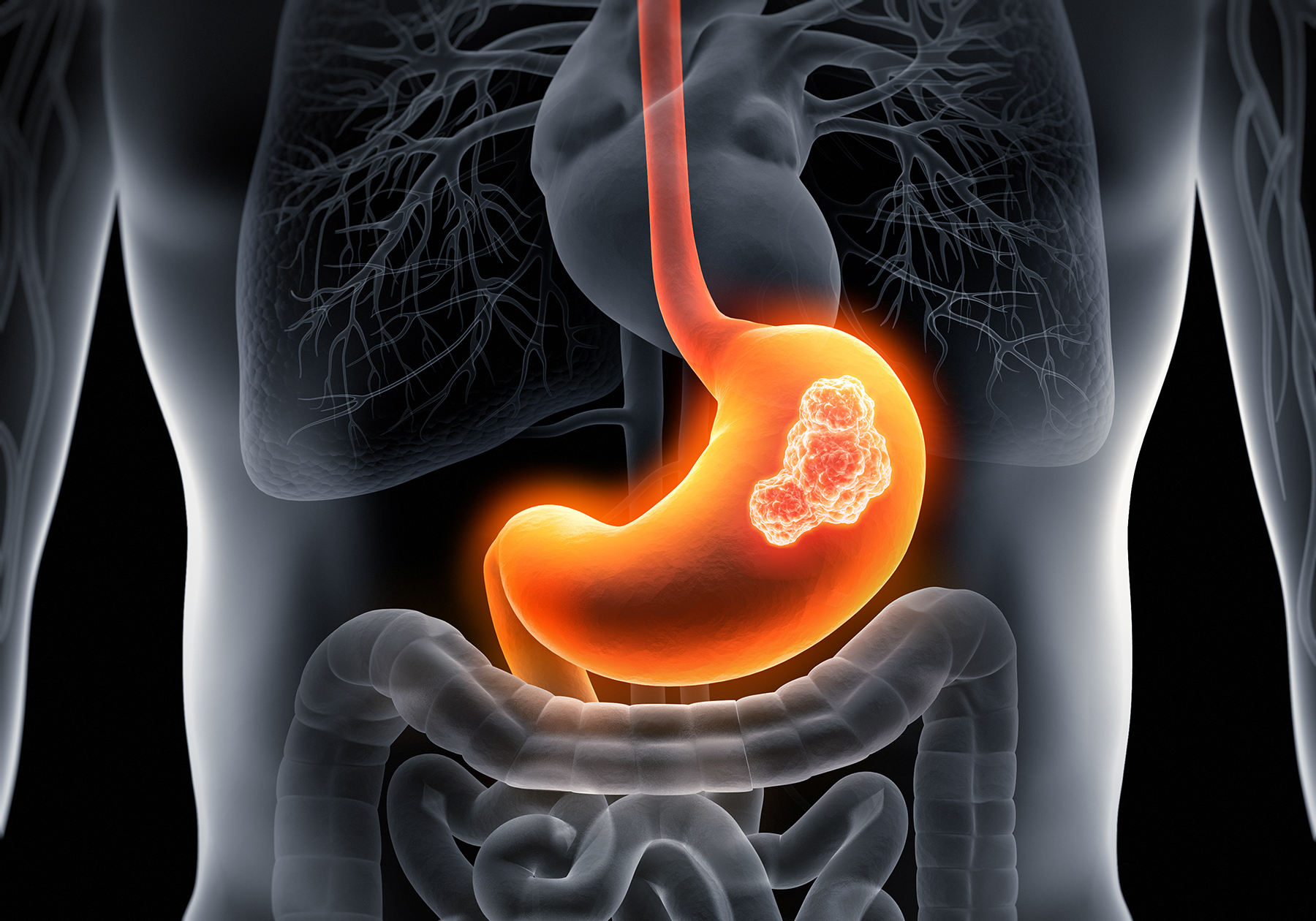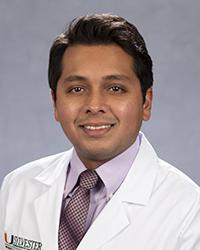Can I Have Stomach Cancer and Not Know It?

Most stomach cancers , or gastric cancers, are adenocarcinomas. These develop from the cells of the innermost lining of the stomach (the mucosa).
There are two distinct types of stomach cancer: intestinal and diffuse.
Each type has a specific appearance, epidemiology, progression, and genetic profile. The type of cancerous tumor that affects your intestines is more common in men and older people. The diffuse, or spread out, type affects both males and females equally, is more common in younger people, and has a more serious prognosis, or potential outcome, than the intestinal type. If you are diagnosed with stomach cancer, your oncologist will explain your type and give you treatment options. An estimated 27,600 new cases are diagnosed in the U.S. each year and over 11,000 will die from it.
Q: What puts you at risk for stomach cancer?
A: The two main risk factors for stomach cancer are infection with helicobacter pylori (the bacteria that causes ulcers) and a family history of stomach cancer. Other risk factors include:
- Smoking: Stomach cancer risk is doubled in smokers
- Diet: Stomach cancer rates are higher in people who eat smoked foods, pickled vegetables, and cured or salted meat and fish. Conversely, eating fresh fruits and vegetables seems to help guard against getting stomach cancer. The vitamin C in fruit may reduce the formation of cancerous compounds in the stomach.
- Having pernicious anemia (B12 anemia) or stomach polyps (adenomas) increases your risk.
- Genetic conditions such as:
- Familial adenomatous polyposis
- Juvenile polyposis syndrome
- Lynch syndrome
- Li-Fraumeni syndrome or Peutz-Jeghers syndrome
Q: What are the warning signs of stomach cancer?
A: In its early stages, stomach cancer may not have any symptoms. Pay attention to your lifestyle and risk factors for gastric cancer.
There are symptoms that you should not ignore:
- Indigestion, heartburn, or feelings of having ulcer
- Difficulty swallowing
- Pain or discomfort in the abdomen, usually above the navel
- Nausea, vomiting, or bloating after meals
- Vomiting blood, or blood in the stool
- Changes in bowel habits
- Loss of appetite
- Unexplained weight loss
- Weakness and fatigue
- An early sense of fullness after only eating small amounts of food
These symptoms may mimic other conditions, such as acid reflux, gastritis, or peptic ulcer, so check with your primary care physician or gastroenterologist.
Q: Is stomach gas a sign of cancer?
A: That depends. If you haven’t changed your diet and are now suffering from gas, it bears looking into. This is particularly true if you have other gastric symptoms, such as nausea and vomiting, unexplained weight loss, or early feeling of fullness.
Q: Should I be screened for gastric cancer?
A: Many countries with a high incidence of gastric cancer, such as Japan, Korea, Venezuela, and Chile, have conducted universal screening. But in areas with a relatively low number of cases, such as in the U.S., screening is only done for people at high risk, due to a helicobacter pylori infection, a family history of stomach cancer, or genetic conditions.
Q: Does stomach cancer show up in blood tests?
A: When looking for signs of stomach cancer, a doctor may order a blood test called a complete blood count (CBC) to look for anemia (which could be caused by the cancer bleeding into the stomach). She or he may also order a fecal occult blood test to look for blood in stool (feces) that can’t be seen by the naked eye.
Other types of tests, based on symptoms, are more definitive of cancer. The main test doctors use to find stomach cancer when signs and symptoms suggest this disease may be present is an upper endoscopy. During an endoscopy, the doctor slides a thin, flexible, lighted tube with a small video camera on the end, down your throat so he/she can see the lining of your esophagus, stomach, and the first part of the small intestine. If anything looks abnormal, your doctor can remove tissue samples through the endoscope and send it to a lab to be tested for cancer.
Q: How is stomach cancer treated?
A: This depends on the characteristics, size, and location of the cancer.
“At the present time, the treatment of gastric cancer requires a multidisciplinary approach with involvement of the surgeon, medical oncologist and radiation oncologist at diagnosis,” says Vinay Minocha, M.D., a medical oncologist who specializes in gastrointestinal oncology with Sylvester Comprehensive Cancer Center. “The focus of future research will be on optimizing the chemotherapy regimen including the earlier incorporation of immunotherapy and targeted therapies in the neoadjuvant (before surgery) and adjuvant (after surgery) setting.”
The main cancer treatments for stomach cancer include:
- Chemotherapy: Anti-cancer medications are injected into a vein or given by mouth as pills to treat the whole body. These drugs enter the bloodstream and reach all areas of the body. This is useful for cancer that has spread to organs beyond where it started.
- Targeted therapies: These drugs may work in some cases when standard chemo drugs don’t, and also tend to have different side effects.
- Immunotherapy: This type of treatment makes use of medicines that help a person’s own immune system find and destroy cancer cells.
- Radiation therapy: Radiation therapy uses high-energy rays or particles to kill cancer cells in a specific body area.
- Surgery: An operation can remove the cancer, part or all of the stomach, and nearby lymph nodes, depending on the type and stage of stomach cancer. The surgeon will try to leave behind as much normal stomach as possible.
Q: Is stomach cancer fatal?
A: The five-year survival rates for stomach cancer patients in the U.S. are tracked by the National Cancer Institute. These are only statistics. Individual outcomes can be different.
According to the NCI, the relative survival rate for stomach cancer is:
- Localized (cancer contained in the stomach): 69%
- Regional (Cancer has spread to nearby structures or lymph nodes): 31%
- Distant (Cancer has spread to distant parts of the body, like the liver): 5%
- All stages combined: 32%
Q&A compiled by Mary Jo Blackwood, a contributor for UMiami Health News.
Last reviewed in November 2023 by Dr. Vinay Minocha, a gastrointestinal medical oncology expert with Sylvester Comprehensive Cancer Center.

Originally published on: August 05, 2020
Tags: adenocarcinoma, Dr. Vinay Minocha, gastric cancer, intestinal and diffuse types, stomach cancer
